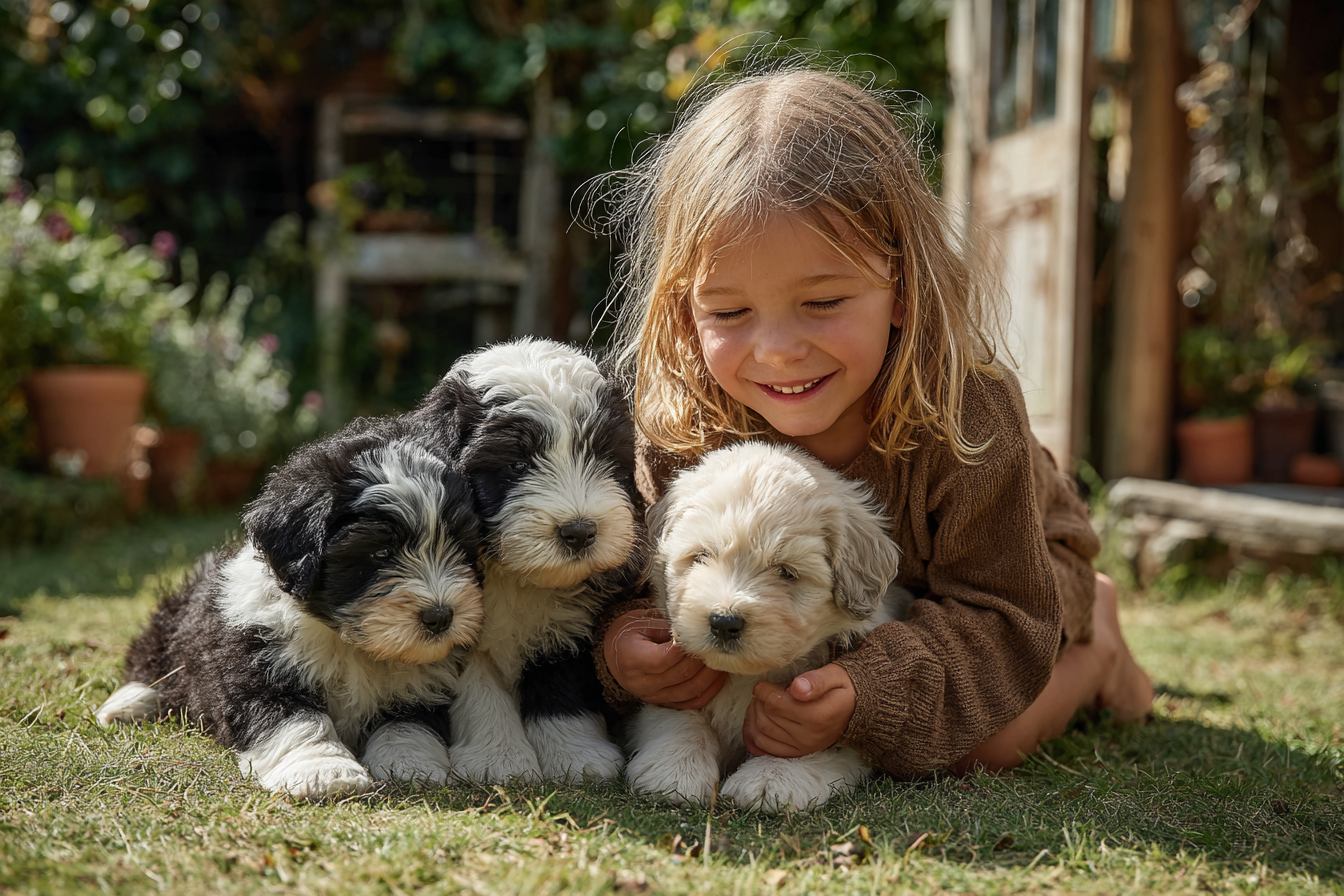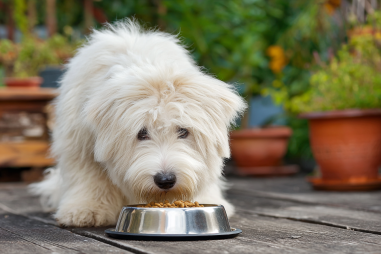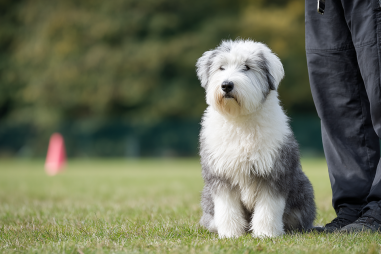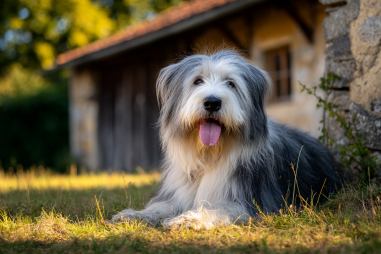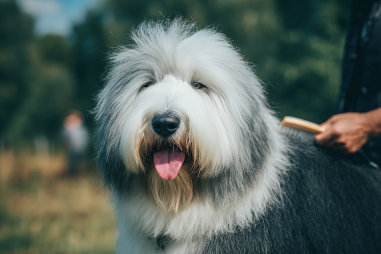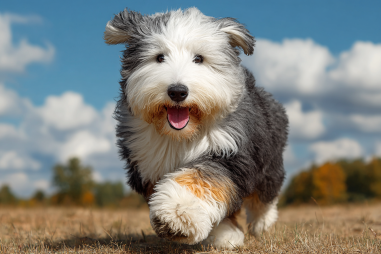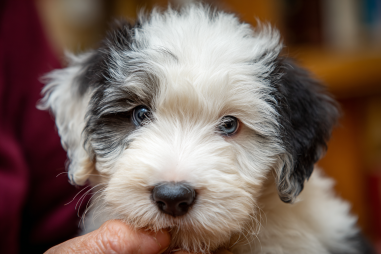Bringing home an Old English Sheepdog puppy is an exciting and joyful experience. Known for their shaggy coats and gentle disposition, these dogs are affectionate, intelligent, and loyal companions. However, like all puppies, they require proper socialization to grow into well-rounded adult dogs. Socializing your Old English Sheepdog puppy early on is key to ensuring they are confident, friendly, and adaptable throughout their lives. This guide will walk you through essential puppy socialization strategies tailored specifically for Old English Sheepdog owners, helping you nurture a happy and balanced companion.
Why Socialization Is Important for Puppies
Socialization is the process of exposing a puppy to a variety of experiences, environments, people, and animals in a positive and controlled manner. For Old English Sheepdog puppies, socialization is crucial because it shapes their temperament and behavior well into adulthood. Without proper socialization, puppies may develop fear, anxiety, or even aggression because unfamiliar situations become overwhelming or threatening.
Old English Sheepdogs are naturally gentle and sociable, but they can also be wary or shy if not correctly introduced to the world around them. Early socialization helps them build confidence and learn that new experiences are safe and enjoyable rather than scary. This foundation reduces the likelihood of problematic behaviors and helps puppies adjust easily to changes in their environment, such as meeting strangers, encountering other dogs, or experiencing loud noises.
Key Socialization Milestones
Puppies have critical socialization periods, usually between 3 and 14 weeks of age, when exposure to new experiences has the most profound and lasting impact. During this window, Old English Sheepdog puppies are especially receptive to learning about the world and forming positive emotional associations. It’s essential to plan socialization activities thoughtfully throughout these weeks.
Some key milestones during puppy socialization include:
- Introducing to different people: Include men, women, children, people wearing hats or glasses, and various ethnicities to broaden your puppy’s comfort zone.
- Exposure to different environments: Take your puppy to parks, city streets, pet stores, and calm outdoor spaces to familiarize them with various sights, sounds, and smells.
- Interaction with other animals: Ensure safe and supervised meetings with vaccinated dogs, puppies, and other gentle animals to promote positive social skills.
- Handling and grooming: Regular and gentle handling of paws, ears, and coat conditions your puppy to accept grooming and veterinary care without stress.
- Introduction to various noises and stimuli: Expose your puppy to household sounds like vacuums, doorbells, and traffic noises gradually in a positive context to avoid noise fears.
Safe and Positive Social Exposure
When socializing an Old English Sheepdog puppy, safety and positivity come first. Overwhelming a young pup with too many new experiences too quickly can backfire, leading to fear or avoidance rather than curiosity. It’s important to introduce new stimuli incrementally and with a calm, reassuring approach.
Here are some strategies to ensure social exposure goes smoothly:
- Start in a controlled environment: Begin socialization in your home or a familiar yard where your puppy feels secure before progressing to public settings.
- Use positive reinforcement: Reward your puppy with treats, praise, and affection during and after new experiences to create positive associations.
- Monitor your puppy’s body language: Watch for signs of stress such as cowering, trembling, or avoiding eye contact, and give them a break if needed.
- Allow controlled interactions: When meeting strangers or other animals, keep encounters short and calm to build comfort gradually.
- Avoid negative experiences: Never force your puppy to face scary situations, and steer clear of unpredictable or aggressive animals.
Handling Shy or Fearful Puppies
Some Old English Sheepdog puppies may naturally lean towards shyness or timidity, especially if their early experiences are limited or if they inherit a sensitive temperament. If your puppy shows hesitation or fear in social situations, patience and gentle encouragement are essential.
Here’s how to support shy or fearful puppies during socialization:
- Move at their pace: Don’t rush new introductions. Allow your puppy to observe from a distance and gradually approach when they seem comfortable.
- Provide safe spaces: Create a cozy hideaway or retreat where your puppy can take breaks if they feel overwhelmed.
- Use calming techniques: Soft tones, slow movements, and gentle petting can help soothe anxiety during social encounters.
- Pair exposure with treats: Offer high-value treats consistently to build positive memories around socialization events.
- Consult professionals if needed: If fear behaviors persist, working with a trainer or behaviorist experienced in positive reinforcement can make a big difference.
Training Reinforcement During Socialization
Training and socialization go hand-in-hand when raising an Old English Sheepdog puppy. Combining basic commands with social exposure helps your puppy learn impulse control, focus, and appropriate behavior in various settings.
Including simple training exercises during social outings can be very effective. For example:
- Use commands like “sit,” “stay,” and “come” to maintain your puppy’s attention around distractions.
- Reward calm behavior when meeting new people or dogs rather than jumping or barking.
- Practice leash walking in different environments to help your puppy feel confident outdoors.
- Incorporate games that encourage social interaction, such as “fetch” with a friend’s dog or gentle playgroups.
Reinforcing positive behavior during socialization creates structured experiences that build your puppy’s trust and responsiveness to your guidance.
Ongoing Socialization Throughout Growth
While the critical socialization window occurs in puppyhood, learning doesn’t stop once your Old English Sheepdog reaches six months or a year old. Continuing to expose your dog to new people, animals, and experiences throughout adolescence and adulthood ensures ongoing confidence and adaptability.
Long-term socialization strategies include:
- Regular visits to dog-friendly parks or social meet-ups to maintain canine friendships and social skills.
- Introducing your dog to new environments such as busy streets, different neighborhoods, and outdoor adventures.
- Scheduling periodic obedience or agility classes to reinforce training and socialization simultaneously.
- Maintaining positive exposure to various sounds and situations to prevent developing fears later in life.
By making socialization a lifelong priority, you help your Old English Sheepdog remain happy, well-mannered, and confident in all kinds of situations.
Raising a Confident and Social Old English Sheepdog
Socializing your Old English Sheepdog puppy isn’t just about preventing behavior problems; it’s about enriching their lives and yours. The time and effort you invest in early and continued socialization will pay off with a loving, well-adjusted dog who enjoys meeting new friends, exploring the world, and facing life’s adventures with confidence.
Remember to keep socialization positive, gradual, and tailored to your puppy’s personality. Celebrate small victories along the way and seek support if challenges arise. With patience and dedication, you’ll nurture a vibrant bond with your Old English Sheepdog—one that blossoms into a lifelong friendship grounded in trust and mutual joy.

